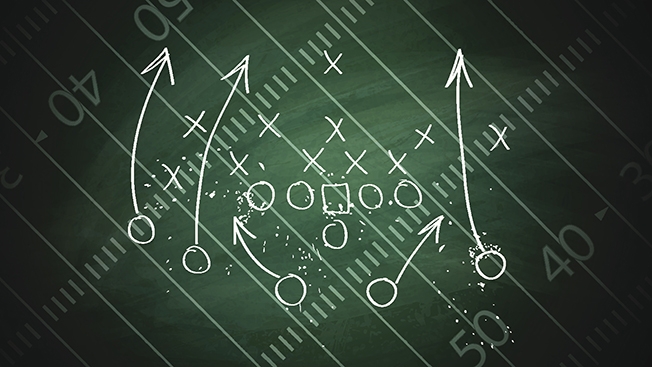
As you read this, the furor over the DeflateGate scandal will have subsided and the intense roar of a million corner sports bars will be dying down following the most revered of American holidays, Super Bowl Sunday.
As always, the best team wins these things. But there’s the rub. As with all high-stakes sports events, both teams are the “best” on paper and in practice. Much as with professional investing, both of them have arrived at a glorious showdown as much by chance as hard work.
Surely no team survives the post-season without a strong offense, a powerful defense, a talented quarterback and a fearsome, chest-pounding, clipboard-throwing head coach. But all NFL teams had that early in the season.
And they all got handed their share of tough breaks: injured receivers, high winds, incredibly loud stadiums (the Seahawks have noise meters on both sides of their Jumbotron). They all have amazing trick plays, crazy interceptions, crafty onside kickers and a phalanx of specialized coaches on the field, all wired up with fancy noise-canceling headphones.
And they all could have won a wild-card game and ended up in Arizona this weekend. Likewise, any of them could have been blasted apart by any challenger, or by the weather or simply a single mistake made by an otherwise sterling quarterback. One missed field goal can end a season.
Yes, this is an investing column, and here’s the point: After the game, one team will be able to look back on months and months of work and say “We’re the best. We won.” They’ll get rip-roaring drunk (some of them), spend the night cheering in the streets and again a few days later in their hometown.
But in their hearts the winning team will know that the gap between “good enough” and “best” is mighty narrow indeed. They will know in their hearts that sheer chance had a lot to do with their winning season. The errant pass, the fumbled ball, the quarterback who took one hit too many — the whole season is a struggle that requires preparation and good decisions but also plain old luck.
As the football saying goes, “On any given Sunday, any team in the NFL can beat any other team.” And that’s the investing takeaway. The stock market is crammed full of the best of the best. Russian rocket scientists, behavioral science PhDs, steely-nerved traders glaring at screens around the clock.
A few of them will be able to look back at a specific period, a quarter, a year, knowing that skill got them to the playing field but some degree of luck kept them alive to play another day. Every year, the biggest market winners are humbled by unexpected events, by bad calls, by risks for which no one could have accounted beforehand.
Retirement investing bet
NFL teams are big-money operations. So are hedge funds and institutional trading desks. The best of the best on Wall Street command salaries and bonuses that would sink an NFL team budget.
Yet, when all is said and done, whatever prices are set by all that trading effort, that’s what the rest of us mere mortals call “the market.” All the buying, all the selling, it’s a zero-sum game. Prices are set and the rest of us simply take note.
What if, instead of having to bet which team will win, all you had to do is bet that one of them will win and one of them will lose. That’s indexing. In a long-term retirement investing plan, you don’t have to guess which side will emerge victorious. To you, it doesn’t matter.
What matters is that the game gets played. Own the market at a low cost and you win every season, no matter what happens on any given Sunday.





